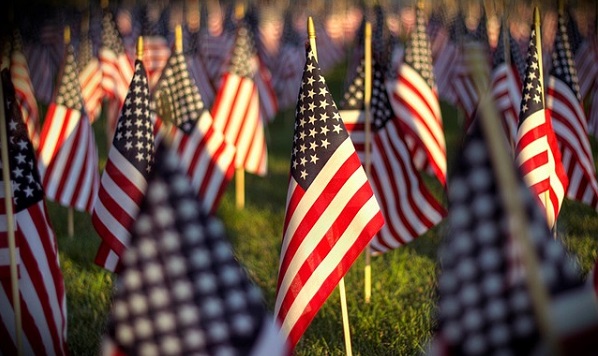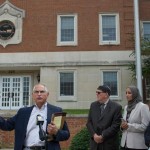By Zainab Chaudry
Some moments of our lives are permanently etched in our mind. A marriage proposal. Walking across the stage at graduation. The birth or death of loved one.
Similarly, most Americans will never forget where we were or what we were doing that moment when we learned news of the tragic 9/11 terror attacks fifteen years ago today.
I was in class – first semester of my first year of pharmacy school – when the professor abruptly announced class was dismissed. The excitement of an early dismissal was quickly replaced by gut-wrenching sorrow when we discovered why.
The days that followed passed in a blur. As reports surfaced of hate crimes against Muslims, I temporarily substituted my headscarf with hoodies and baseball caps – attending candlelight vigils and memorial services after classes ended.
I struggled to reconcile my American identity with my Islamic faith – grappling with the hostility and aggression directed towards me because the perpetrators shared my religion.
For many American Muslims, the struggle is still real. Fifteen years after one of the worst attacks on U.S. soil, our communities are reeling from seemingly unprecedented levels of islamophobia.
Organizations like the Council on American-Islamic Relations that track and monitor islamophobia recorded more U.S. mosques attacked or threatened in 2015 than ever before.
Religious profiling, employment discrimination, hate crimes, bias attacks, and faith-based bullying of Muslim children – including by educators – are all alarmingly on the rise.
In fact, attacks are more deadly in nature today. An anti-Muslim bias motive is suspected or has been substantiated in numerous shooting and stabbing deaths since the Chapel Hill murders of three young American Muslims.
Muslim communities grieve, remember and reflect with our fellow Americans. Yet, we continue to be singularly viewed through the lens of national security while fending off the hostility and suspicion that is now commonplace in the context of the American Muslim experience.
It is said that time heals all wounds. Our nation united, demonstrated its resilience and emerged stronger in the aftermath of this tragedy. But today, years later, Muslims feel more vulnerable than ever.
Even those who have honorably served in the military, or dream of doing so, are not immune or exempt from attack.
A Gold star Muslim family, who made the ultimate sacrifice when their son gave his life in combat to save his fellow soldiers, was publicly insulted and ridiculed after his parents confronted this islamophobic political climate at the 2016 Democratic National Convention.
In a separate incident, an investigation into the death of Muslim recruit Raheel Siddiqui revealed that he suffered extensive abuse and mistreatment at a military training camp before committing suicide.
Siddiqui was a high school valedictorian who dared to dream of serving his country, but that dream became a nightmare he would never awaken from.
Islam is not responsible for the terrible events of that September day, but our communities were doubly impacted – both by the terror attacks, and by the backlash that has ensued.
As a community activist, anxious Muslim parents often ask me how they can challenge Islamophobia and protect their families from the uncomfortable reality of post-9/11 America.
My message to them is simple: We mourn like all Americans, but we are not responsible for the events of that day. Islam does not condone terror.
Our communities have suffered alongside our American friends and neighbors of other faiths. We have also shouldered the misplaced burden of blame.
There is no justice or logic in us continuing to pay the price for an act that does not reflect our values or beliefs.
We will continue to remember, mourn and reflect on the loss of innocent life – not out of a misplaced sense of guilt because we are Muslim, but because we are human beings who cherish and honor life, just as our faith instructs us.











